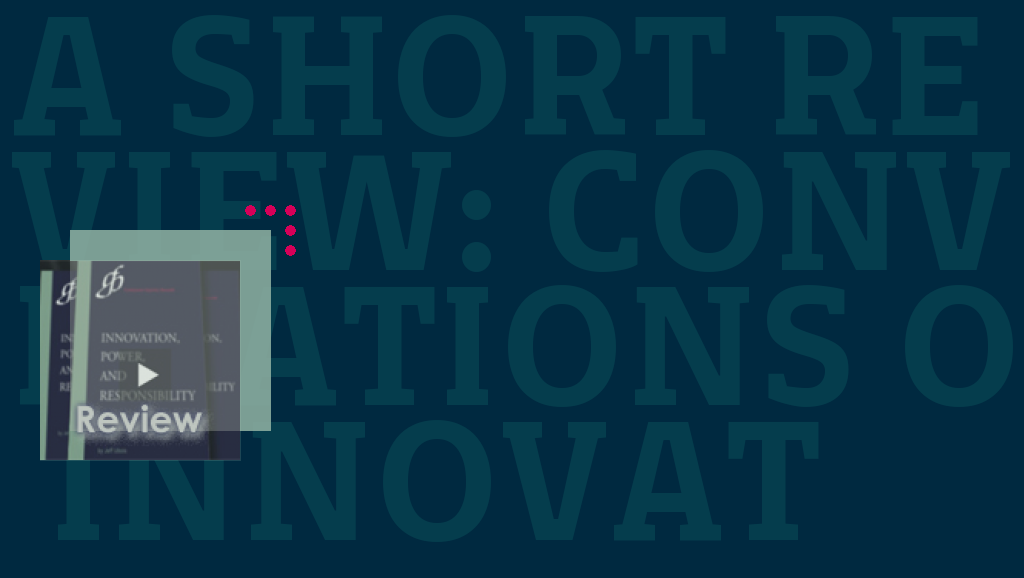Last week we put online a new publication of the Foundation Bassetti entitled “Conversations On Innovation, Power And Responsibility”, written by Jeff Ubois and available in hard copy, downloadable pdf or Issuu (on line) versions.
The publication is a resume’ of conversations conducted between Mr Ubois and 12 internationally renowned innovators and thinkers and features a preface written by Piero Bassetti.
In this preface Mr Bassetti states that “these conversations have realized one of the fundamental intents of the Bassetti Foundation”. He goes on to state that “the cultures and politics of innovation devote scarce attention to prefiguring adequate models to tackle its consequences” and argues that there is a need for political, social and cultural modelling, alongside that purely economic, if innovators are to predict the consequences of their innovations. He goes on to conclude that this book demonstrates that different people have different interpretations of what responsibility means, and states that “the concern about responsibility does not seem to be understood within a wider historical and political framework”.
In his introduction Ubois addresses the dual problem of innovation and responsibility, offering descriptions of these ideas and other related perspectives and concepts. Related concepts include sustainability, accountability and the precautionary principle, and he states that “discussions around responsibility in innovation should take into account different interpretations of responsibility as well as concepts, laws and other governance mechanisms that touch on responsibility, as innovators are likely to be affected by one or more of them to varying degrees”.
The final question raised in the introduction is that of choosing subjects: where does responsibility matter now? Respondents were chosen “who are building tools that reflect and embody intentionally chosen values, …or leaders of institutions with a taste for policy who were in touch with large networks of innovators”.
The interviews are divided into 4 sections, entitled Genetics and Healthcare, Nanotechnology, Robots and Computing and Design. Each section contains a brief outline and description of conversations conducted with leading thinkers within each category described above. The discussants come from many different fields including industry, academia and non-profit organizations and from diverse fields including nanotechnology, bioethics, design and computer science.
The summaries of the discussions are very concise and raise several interesting questions regarding responsibility but also innovation itself. Amongst many others discussions Roberto Verganti argues different forms of innovation involve different types of responsibility, Michael Twidale offers an interesting viewpoint upon regulation and an old friend of the foundation Jeff Jonas discusses problems raised by computer software innovation in terms of abiding by the Universal Declaration of Human rights.
The book also contains discussions with well known friends of the Bassetti Foundation Thomas Murray of The Hastings Centre and Ronald Arkin of The Mobile Robot Laboratory in Georgia.
The final sections of the book are entitled “A Summing Up” and “Questions For Further Research”. In the summing up section the author outlines a number of consistent themes that have come out during the conversations. He also displays a table in which he compares concepts across domains and in different stages of innovation. The questions for further research section opens various debates including media strategy, building communities of practice, methodologies and language and terminology use.
In summary, a short, informative, well written and easy to read book offering plenty of food for thought.
















